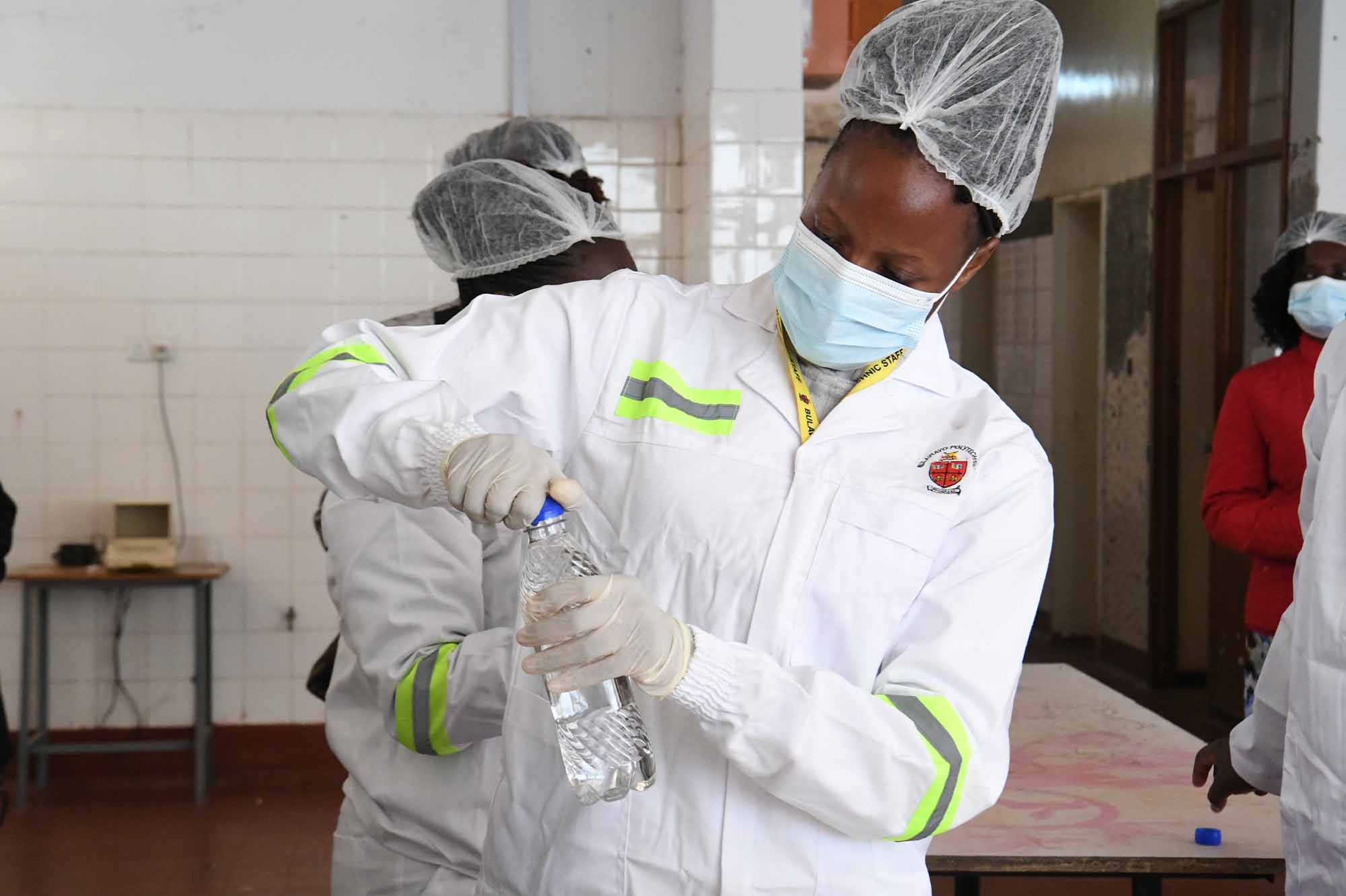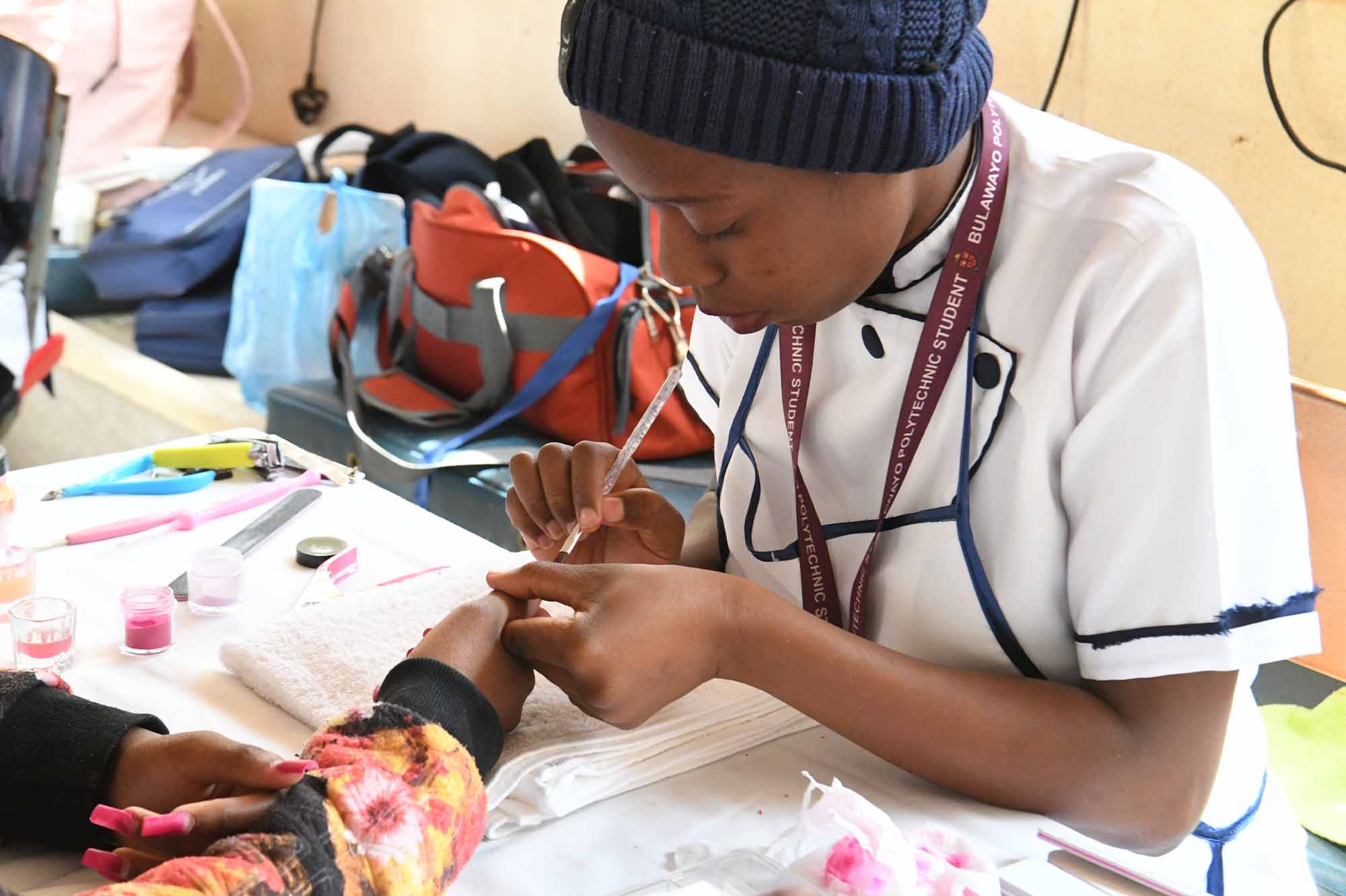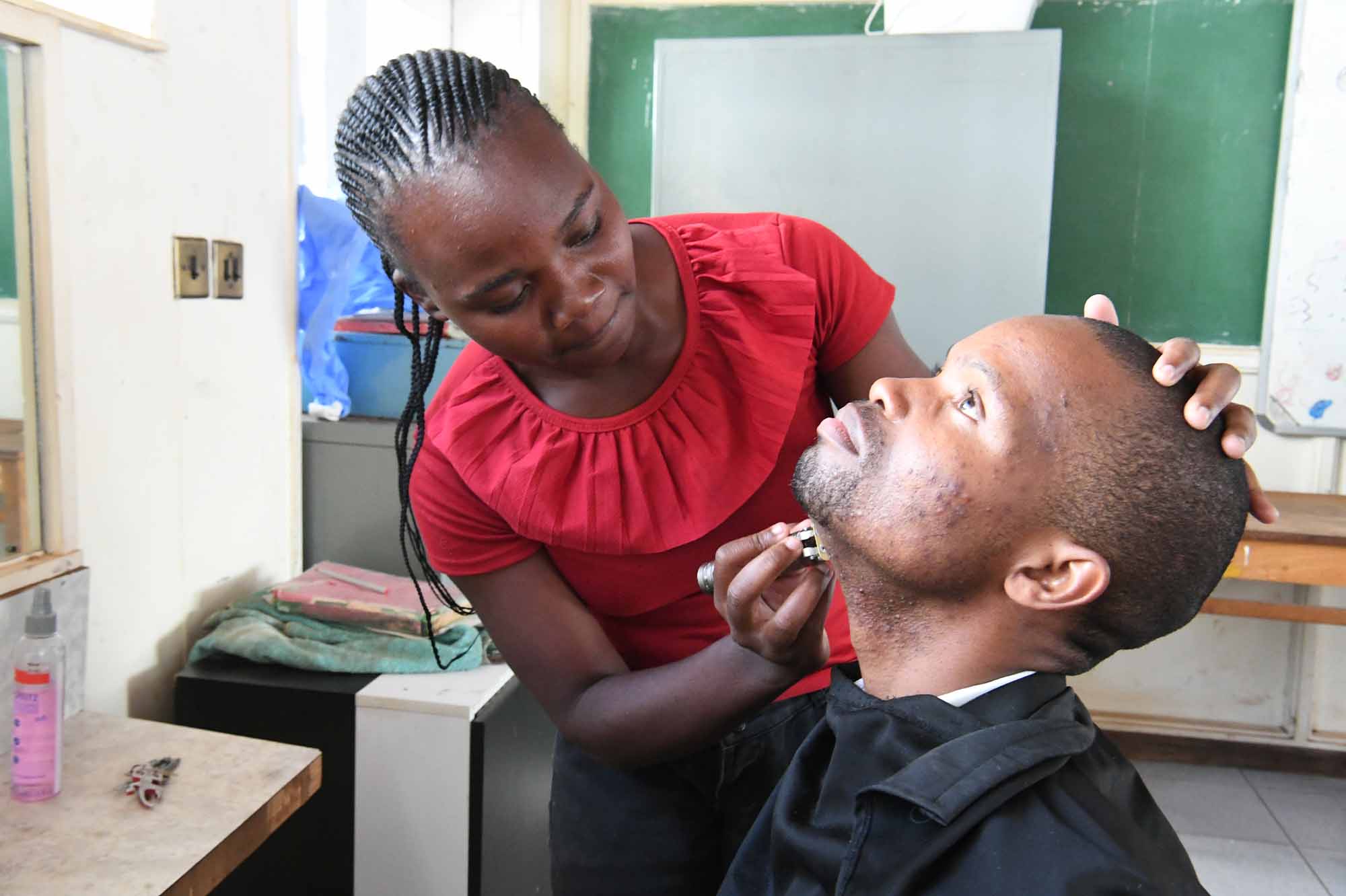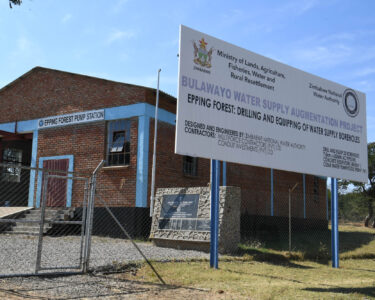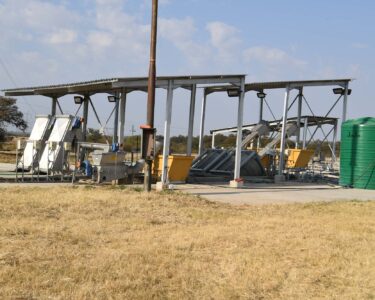The Second Republic has decreed that universities, colleges and polytechnics should not focus too much on producing graduates whose only qualification is to look for jobs. Our Editor-in-Chief, Munyaradzi Huni, recently travelled to Bulawayo Polytechnic where, after being taken though the multiplicity of projects being undertaken there, he was left wondering whether this was still a learning institution or a fully-fledged business enterprise. Read on . . .
Bulawayo Polytechnic has a student population of 4,500 and a staff complement of 400. It has 10 departments, broken down as follows: Mechanical Engineering, Civil Engineering, Construction Engineering, Electrical Engineering, Applied Sciences and Technology, Arts and Design, Commerce, Automotive Engineering, Adult and Continuing Education and the Hotel School.
The polytechnic’s acting principal is Chiedza Masanganise, who below gives an insight into what makes her institution tick.
“Each department has its own business entity. In other words, as you [lecturers] are training, you should be able to set up the business component relevant to your area so that you nurture your students and ensure they are ripe to go out there and become employers.
“We still send our students on attachment because we want them to see what is happening in the field. We are slowly developing our own industries here, but we are not quite there yet. Very soon, there will be no need for us to send them out on attachment. But, for now, we feel our students need that hands-on experience which they can only get out there.
“We are anchored in the real world of production. That is our motto and we make do with what we have,” she recently told the Brick by Brick magazine.
By way of introduction, Masanganise outlined the polytechnic’s vision.
“As Bulawayo Polytechnic we are not an ivory tower; we are part of the community. It is our national duty to contribute towards the development of our communities. In this spirit, we have signed MoUs and partnerships with the Infrastructural Development Bank of Zimbabwe (IDBZ), Bulawayo City Council and CA Engineers, among others. Right now, we are engaged in talks for the signing of an MoU with the University of Venda in South Africa,” she said.
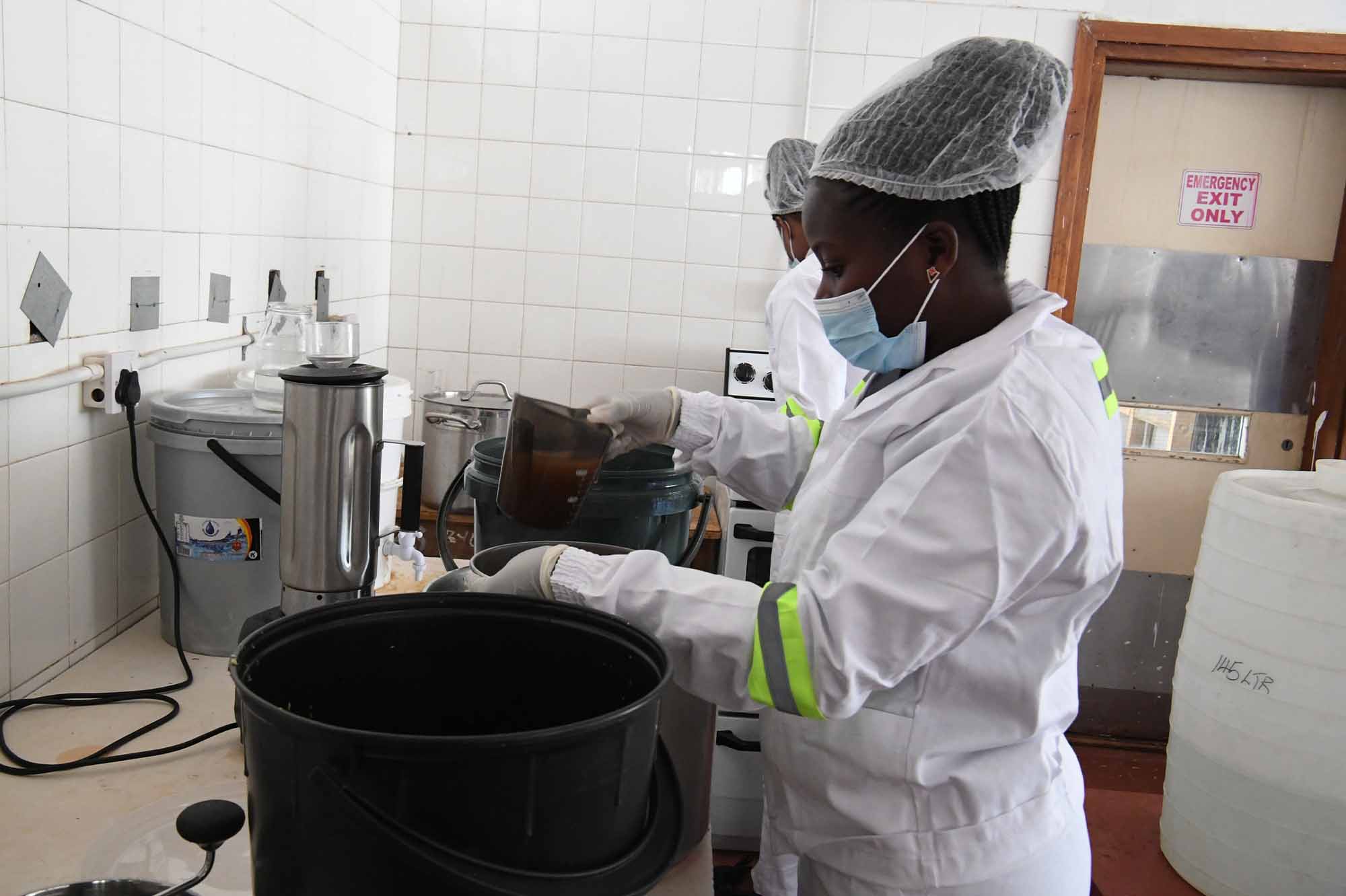
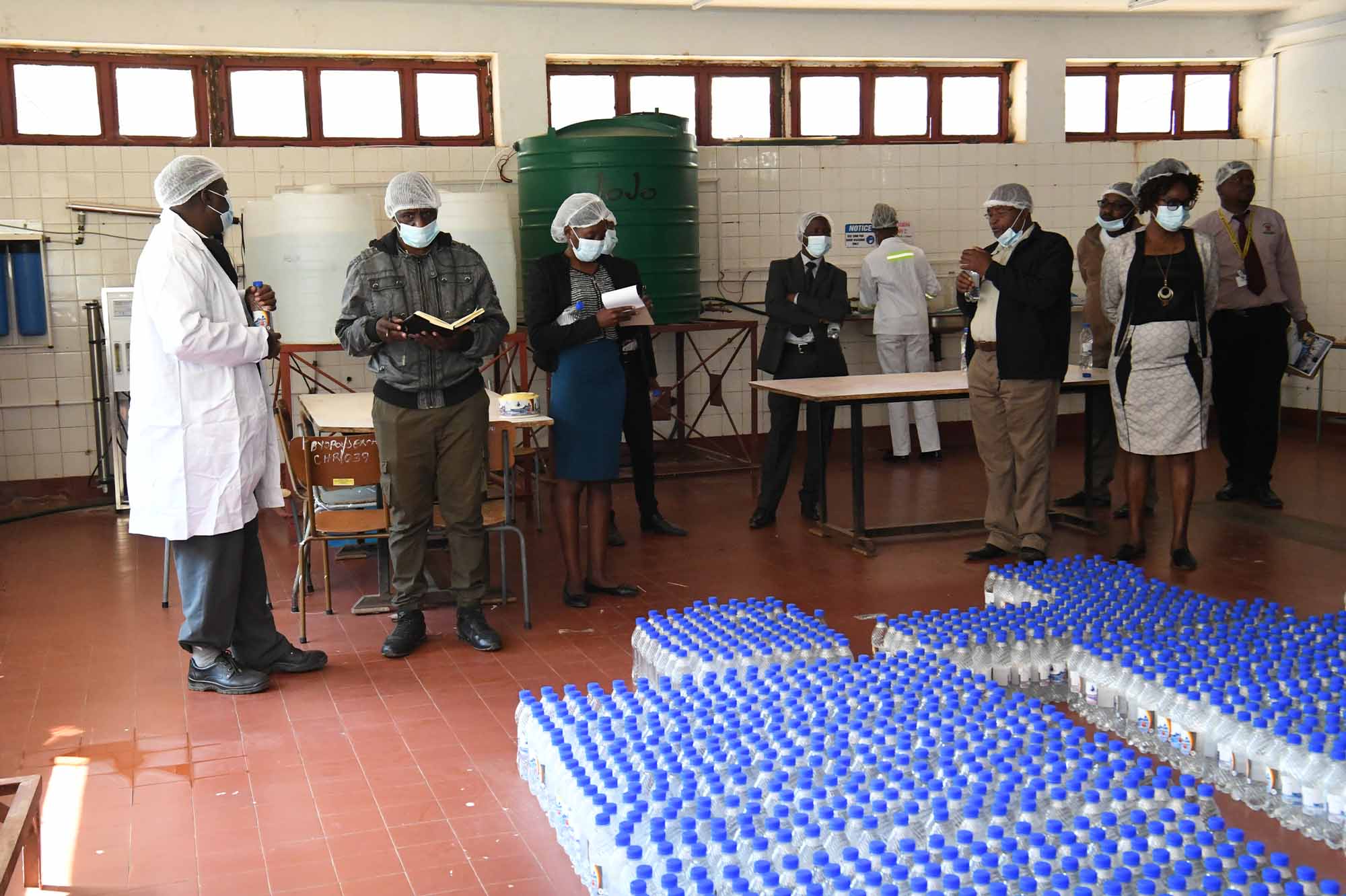
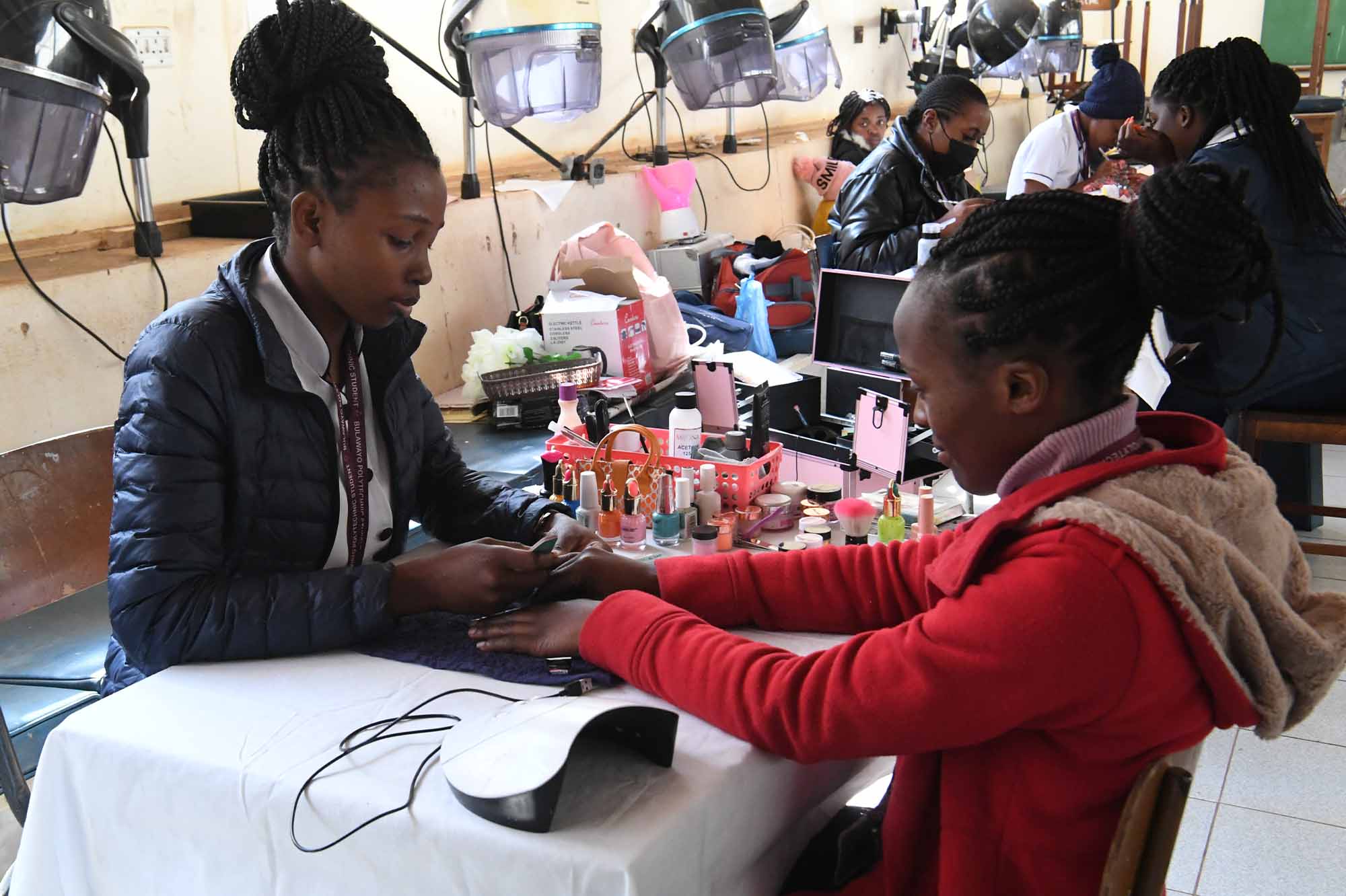
So, what is it that makes Bulawayo Polytechnic stand head and shoulders among its peers, Brick by Brick wanted to find out.
Masanganise reeled out a long list of projects that would leave even some stock exchange-listed firms green with envy.
This is her tale of success: “We have established the Inthonsi Factory which produces 2,000 bottles of water per day. Our parent ministry [the Ministry of Tertiary and Higher Education] is already slacking its thirst with our bottled water. We are in the process of formally registering the factory and very soon we will be producing heritage drinks, such as umtshwankela, umnyi and umbhunzu.
“But that’s not all. We also have a clothing factory which produces shirts, T-shirts, golf shirts, caps, table cloths, personal protective clothing and graduation gowns. Bulawayo Polytech students will, therefore, not need to buy their gowns from the usual stockists.
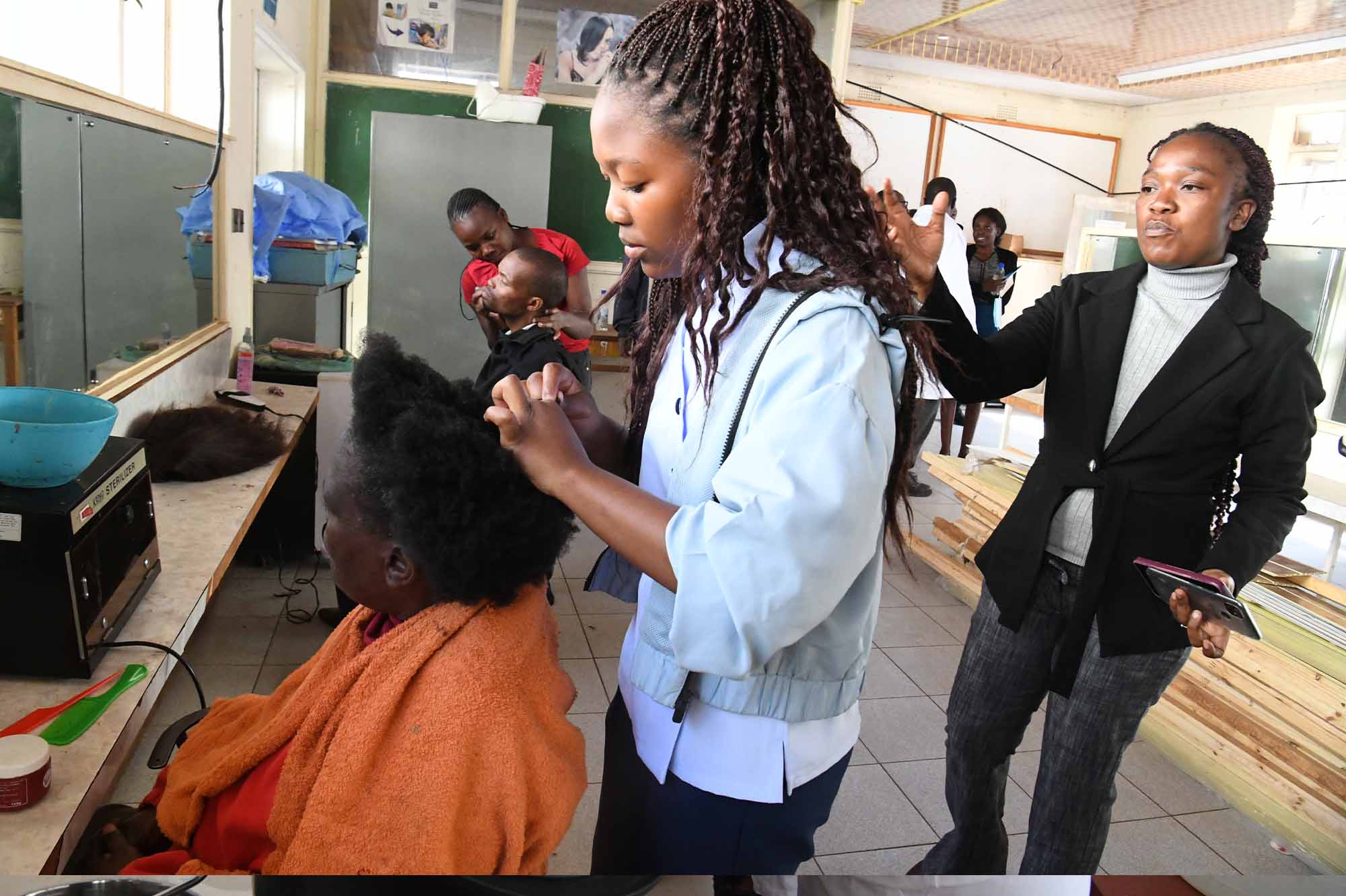 “Bulawayo Polytech has also set up a detergent factory, which produces dish washing liquid, tile cleaners, floor polish, degreasers, thick bleach, surface cleaners, pine gel and sanitisers. This provides a win-win situation for the poly, since we no longer have to spend money on buying detergents for our own consumption. By using our own detergents, we are saving on our limited cash resources. But the best part is that this department is poised to go commercial in the not-too-distant future.
“Bulawayo Polytech has also set up a detergent factory, which produces dish washing liquid, tile cleaners, floor polish, degreasers, thick bleach, surface cleaners, pine gel and sanitisers. This provides a win-win situation for the poly, since we no longer have to spend money on buying detergents for our own consumption. By using our own detergents, we are saving on our limited cash resources. But the best part is that this department is poised to go commercial in the not-too-distant future.
“It is our policy as an institution to encourage our students to research and come up with different innovations. A good example is the automated egg incubator, which was developed jointly by staff and students in the electrical and mechanical engineering departments. We intend to embark on a poultry project, and we are going to incubate the chicks here.
“In fact, the opportunities for innovation are limitless. One of our students has come up with an automated Bluetooth domestic appliances control system. For example, one can open and close the gate by remote control, switch on and off the refrigerator, lights, microwave, television and decoders from one’s office via your smartphone. The most remarkable thing about this innovative system is that it was developed by a student one of whose parents suffers from a disability. The idea was to assist his mother who found it difficult to perform some of these tasks by herself. It’s a brilliant innovation and it works perfectly well.
“The ministry has advised us that when students complete their studies, they should form consortiums which the government has pledged to support. The government will fund those start-ups while we nurture them as an institution. They can come with their projects and we support them until they are in a position to stand on their own feet. This is how we intend to contribute to the development of our country.”
Masanganise revealed that Bulawayo Polytechnic was also into cosmetology.
“We do manicure, pedicure, facials, make-up, eyebrow tinting, nail art, body massages, hairdressing treatments, oil treatment and shaving creams. We showcased this side of our business savvy during the last edition of the Zimbabwe International Trade Fair (ZITF) and it proved to be quite a hit. We made some very good money which we have since re-invested in the renovation of our salons, which fall under the Applied Sciences Department,” Masanganise told Brick by Brick, adding:
“The polytechnic’s Mechanical Engineering Department also does balustrading and NUST [the National University of Science and Technology] was one of our first clients. NUST contracted us to carry out the fabrication and installation of a steel balustrade at the student services centre. Phase one is complete and phase two is currently underway.”
Just when Brick by Brick expected Masanganise to stop and catch her breath, it turned out that she was not yet finished.
She told the magazine’s Editor-in-Chief that Bulawayo Polytech was also into the manufacture of manhole covers and steel grids. “This particular project is being undertaken by a consortium of 10 graduate students. We are incubating them while they are in the process of registering their own company. Once they are able to manage things on their own, we will wean them off them and take on a new group.
“This is our own way of making sure that our graduates don’t become job-seekers when they leave the polytechnic. We want them to create jobs and not to look for jobs.
“But that is not the end of the story. We are also involved in a hospitality project at Tshabalala Game Park, where we have been contracted to build two-bedroomed lodges on a trial basis. It’s still work in progress, but we are now at roof level. The people running the game park are planning to build a total of 10 such lodges, but whether they will hire us in the long term depends on how we have fared so far. However, we are very confident that we will be contracted to build the 10 lodges because the quality of our work speaks for itself.
“Bulawayo Polytech also played a pivotal role in renovating hostels gutted by fire at Hillside Teachers’ College a few years ago.”
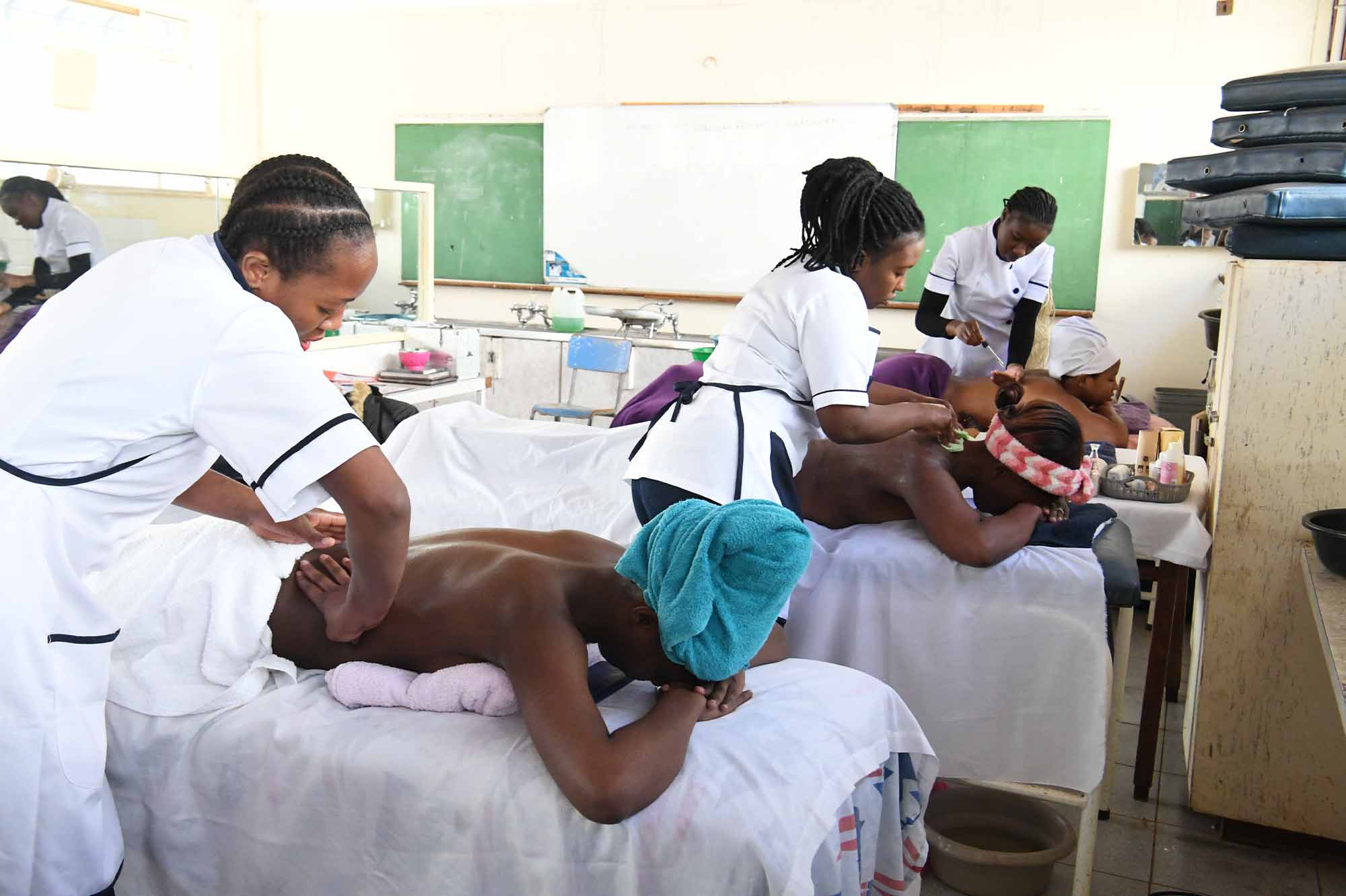
The acting principal was quick to point out that Bulawayo Polytechnic’s pioneering construction work was not confined to Bulawayo Metropolitan Province alone. First on her list was the Binga Industrial College, followed by the construction of the Plumtree Polytechnic.
Over to Masanganise: “We were tasked by the ministry to construct the Binga Industrial College. All the topographical surveys and architectural drawings are done. As we speak, construction is work-in -progress.
“His Excellency, President Mnangagwa, declared that Binga must have an institution of higher learning. We could not afford to let him down. So Bulawayo Polytech went into action. The Binga Rural District Council kindly donated a disused building to us which we turned into classrooms. The Binga Industrial College subsequently enrolled about 36 students, who will be graduating later this year.
“As we speak, construction work is underway at the Plumtree Polytechnic, where we have already built the entrance, guard room and a hall. The hall will be used for our training sessions.
“Because we could not get an old building to renovate in Plumtree, we had to train the first 13 students at Plumtree High School. These are now in their second year. Altogether, a total of [Plumtree Polytechnic] 179 students are currently enrolled here at the Bulawayo Polytechnic.”
The polytechnic has also spread its tentacles to Lupane, where it has set up a carpentry shop, specifically to produce hard wood exterior doors. “We are currently producing 10 doors per day. The doors were on sale at the ZITF,” explained Masanganise, adding: “The Lupane carpentry project makes economic because the wood is in plentiful supply. It’s going to be a very big project, so part of our long-term plan is to upgrade the carpentry shop into a fully-fledged factory.”
However, despite its community-driven approach to business, Bulawayo Polytechnic has not neglected its own needs. Says Masanganise: “Due to Bulawayo’s perennial water challenges, we have drilled three boreholes on campus, which will ensure that good quality water is always available on tap.
“Generally, we do our own maintenance in terms of electrical, mechanical, carpentry and plumbing and even car maintenance, except for top-of-the-range vehicles which we take to the specialists.”
With such a mouthwatering catalogue of projects, one would be tempted to think that Chiedza Masanganise would be resting on her laurels. But not this “Iron Lady” of Bulawayo’s tertiary sector, who looks at the future with tinted glasses.
“Our ambition,” she opens up, “is to own a farm. Our horticulture department runs a small plot, which is currently supplying vegetables to our students. What we now want is a farm, so that we can produce all our food needs. It will also go a long way in reducing academic fees. And, don’t forget about the poultry project I mentioned earlier on.”
“I don’t want to reveal too much for now, but we have been approached by a company to build wagons for them. Although we are still at the negotiation stage, we are quite optimistic of landing the contract since the initial designs are already complete.
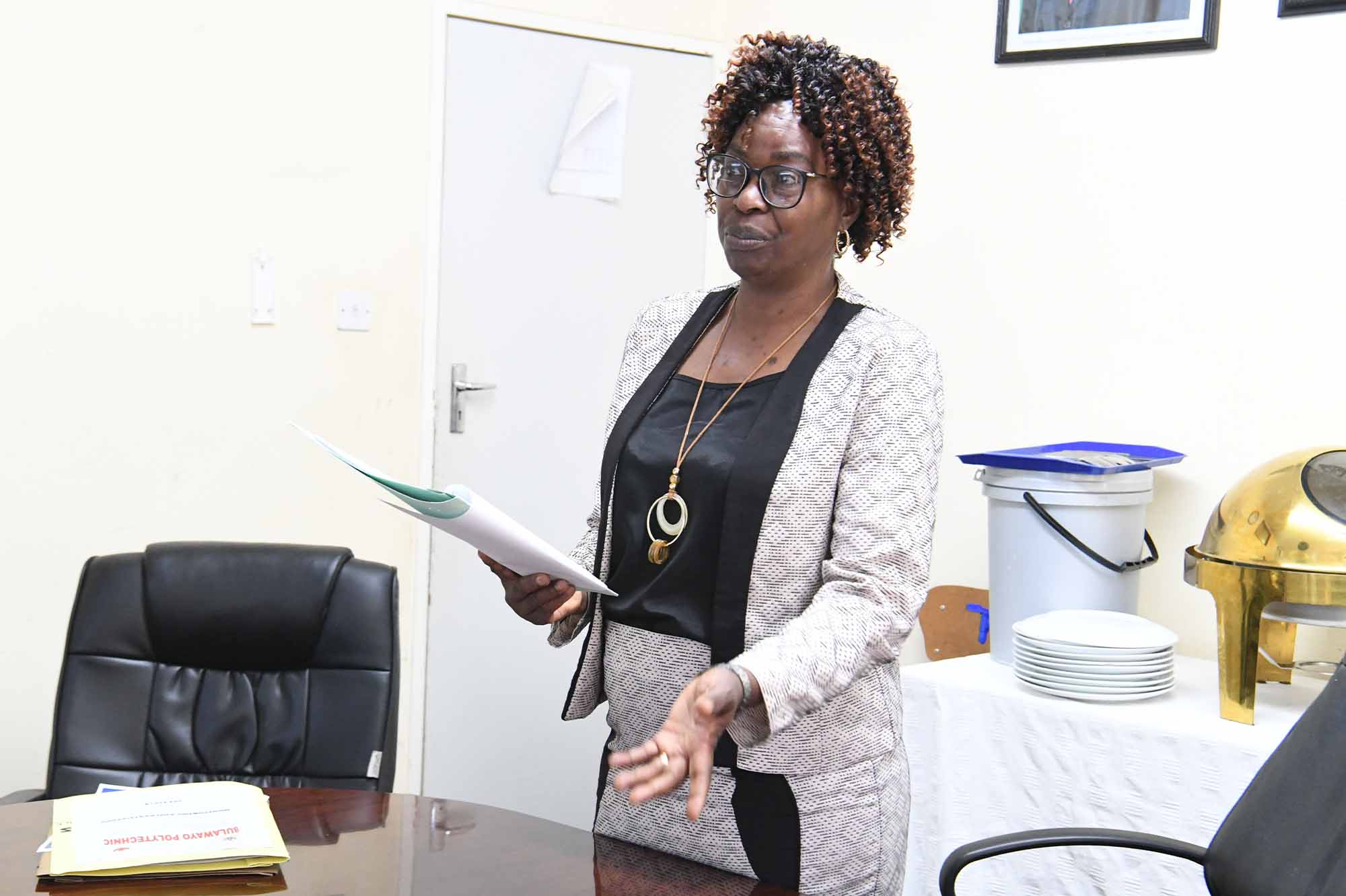
“Plans to expand the college are also in the pipeline. We are planning to build a multi-purpose hall, but this is on hold until we secure additional land. There is a piece of land lying idle right next to the polytech. We have approached the Bulawayo City Council (BCC) for the possible purchase of the vacant piece of land.”
Last, but by no means last, the setting up of a pharmacy is another project on the cards.
“Last year we introduced a pharmacy course, for the purposes of training pharmacy technicians, who will eventually work in our pharmaceutical factory. Yes, it’s a tall order, but we are committed to doing it and it shall be done. Finally, sisakha ilizwe lethu ngoba ilizwe lakhiwa ngabanikazi balo,” Masanganise said emphatically as the Brick by Brick team bade farewell to the City of Kings.



